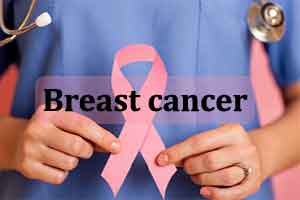- Home
- Editorial
- News
- Practice Guidelines
- Anesthesiology Guidelines
- Cancer Guidelines
- Cardiac Sciences Guidelines
- Critical Care Guidelines
- Dentistry Guidelines
- Dermatology Guidelines
- Diabetes and Endo Guidelines
- Diagnostics Guidelines
- ENT Guidelines
- Featured Practice Guidelines
- Gastroenterology Guidelines
- Geriatrics Guidelines
- Medicine Guidelines
- Nephrology Guidelines
- Neurosciences Guidelines
- Obs and Gynae Guidelines
- Ophthalmology Guidelines
- Orthopaedics Guidelines
- Paediatrics Guidelines
- Psychiatry Guidelines
- Pulmonology Guidelines
- Radiology Guidelines
- Surgery Guidelines
- Urology Guidelines
Consume Soy and cruciferous vegetables to reduce side effects of breast cancer treatment

Consuming soy foods (such as soy milk, tofu and edamame) and cruciferous vegetables (such as cabbages, kale, collard greens, bok choy, Brussels sprouts, and broccoli) may be associated with a reduction in common side effects of breast cancer treatment in breast cancer survivors, say a team of scientists led by Georgetown Lombardi Comprehensive Cancer Center.
In the study, published in Breast Cancer Research and Treatment, higher intake of cruciferous vegetables and soy foods were associated with fewer reports of menopausal symptoms. Higher soy intake was also associated with less reported fatigue. The breast cancer survivors studied included 173 non-Hispanic white and 192 Chinese Americans including US-born Chinese and Chinese immigrants.
Researchers say breast cancer survivors often experience side effects from cancer treatments that can persist months or years after completion of treatment. For example, because many treatments designed to prevent breast cancer recurrence inhibit the body's production or use of estrogen, the hormone that can fuel breast cancer growth, breast cancer patients often experience hot flashes and night sweats, among other side effects.
The lead author on the study, Sarah Oppeneer Nomura, PhD, of Georgetown Lombardi, said that while further research is needed in larger study populations and with more detailed dietary data, this project addresses an important gap in research on the possible role of lifestyle factors, such as dietary habits, in relation to side effects of treatments.
"These symptoms can adversely impact survivors' quality of life and can lead them to stopping ongoing treatments, she says. "Understanding the role of lifestyle factors is important because diet can serve as a modifiable target for possibly reducing symptoms among breast cancer survivors."
When study participants were evaluated separately by race/ethnicity, associations were significant among white breast cancer survivors; however; while a trend was seen in the benefit for Chinese women, results were not statically significant. Researchers explain Chinese women typically report fewer menopausal symptoms. Most of them also consume cruciferous vegetables and soy foods, making it difficult to see a significant effect in this subgroup. Indeed, in this study, Chinese breast cancer survivors ate more than twice as much soy and cruciferous vegetables.
Whether the reduction in symptoms accounts for longtime use of soy and cruciferous vegetables needs further investigation, says the study's senior author, Judy Huei-yu Wang, PhD, of Georgetown Lombardi's Cancer Prevention and Control Program.
Results obtained in preclinical studies in animals show that biologically active compounds present in both soy and cruciferous vegetables cause breast cancer cells to grow, but have opposite effects in animals that consume these compounds well before cancer is diagnosed and continue consuming them during and after cancer treatments.
Until more research is conducted, breast cancer patients should not suddenly start eating soy, if they have not consumed it before, says Leena Hilakivi-Clarke, PhD, a professor of oncology at Georgetown Lombardi and a co-author of the study.
Researchers also found suggestive associations with lower reporting of other symptoms, including joint problems, hair thinning/loss and memoryless in women who consumed more soy foods, but these associations did not reach statistical significance.
Phytochemicals or bioactive food components, such as isoflavones in soy foods and glucosinolates in cruciferous vegetables may be the source of the benefit, researchers say. Isoflavones bind to estrogen receptors and exert weak estrogenic effects, among other effects. Glucosinolates in cruciferous vegetables influence levels of metabolizing enzymes that can modulate inflammation and levels of estrogen, possibly attenuating treatment-related symptoms.

Disclaimer: This site is primarily intended for healthcare professionals. Any content/information on this website does not replace the advice of medical and/or health professionals and should not be construed as medical/diagnostic advice/endorsement or prescription. Use of this site is subject to our terms of use, privacy policy, advertisement policy. © 2020 Minerva Medical Treatment Pvt Ltd